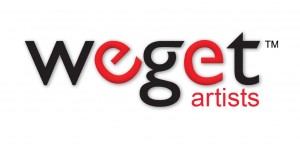Startup flopped? Blame the labels.
Alienating the artist community? Blame the labels.
Creative vision railroaded? Blame the labels.
Got bad credit? Blame the labels.
It’s not that the major labels won’t force you into an unworkable deal, bleed you of every investor dollar you’ve got, then kick whatever’s left into bankruptcy. It’s not that they won’t railroad your creative vision, and put a committee of producers and writers onto your project until you hate your own music.
They will, just like before. Nothing’s changed.
The difference now is that you already know this is going to happen, before you start the licensing or partnership process. Which means that in 2012, the major labels simply aren’t a viable excuse anymore – for anything. That is, for failure to succeed, properly establish transparency with the artist community, develop the creative vision you want, or scale as a company.
That blame-game is officially dead now. Which means statements like these are now just naive.
“Once you have a license, it’s valid for a few months and you have to negotiate again and again. We realized it’s a huge overhead, the whole licensing and legal thing. There’s so much gray zone. You talk to them and they don’t have a clue about new models, and are suspicious of new things.”
Wahwah.fm CEO Philipp Eibach, in comments to GigaOM prior to shutting down.
And, you can’t blame the labels for behaving like the boxing industry. Because we already know that big labels withhold money from their artists, don’t pass royalties through, and generally behave in non-transparent and near-criminal ways. Daniel Ek really shouldn’t be getting on a stage with Walt Mossberg, pretending that artists are getting paid by their labels, because they aren’t. It’s just common knowledge at this point, Spotify is guilty by association.
Investors also know better, and they have for years. This isn’t Monopoly money anymore, they figured all this out after getting burned in the late-90s and 2000s. But there are absolutely gigantic sums of cash coming into music concepts that specifically avoid label licensing. Which means the greatest levels of innovation are happening around the labels, often without their involvement. And the biggest changes affecting the industry are coming from the outside, not from within.
Just consider a few of the summer’s biggest bets, all of which are not directly tied to major label recording licenses.
(1) TuneIn, $16 million
(2) Sonos, $135 million
(3) Roku, $55 million
(4) The Echo Nest, $17.5 million
(5) Ticketfly, $22 million
Of course, some of this only overlaps into music, it isn’t squarely in the music industry. But maybe that’s the point: this is money that could have gone to label-licensed stuff, but instead, it’s steering completely clear of that nightmare.
And the companies that do focus on major label licensing either crash-and-burn, or have some serious distortions associated with them. Like Spotify, which is looking more and more like a gigantic exercise in Wall Street wizardry and excess, and less like a viable, long-term music play you’ll be enjoying in ten years. In fact, the majors are part owners in this game, and beneficiaries from all the investment cash sloshing around. And, gigantic beneficiaries from a ‘liquidation event’ (IPO, sale, etc.), however outlandish that seems in the current climate.
Which is a shame, because Spotify is easily one of the best music software packages I’ve ever used. But they’re ultimately part of the problem, they’re making major label deals with their eyes wide open. Then, blaming their own partners for the problem.
The question is what this is ultimately doing for innovation in this space. Maybe, nothing: UMG executive David Ring recently explained that most music startups lack a viable model to begin with, that it’s not the labels’ fault. Because it’s not licensing that destroys startups, it’s bad models. I’d agree with that to a certain extent, though companies like UMG are rarely helping out, they’re rarely in the same rowboat with startups.
The problem is that if you actually do stumble upon a successful model, it’s not really yours. The licensing can be taken away at any moment. I’d say that this terrain changes at some point in the long-term future, but not anytime soon. UMG merges with EMI, that merges with something else, the catalogs erode in importance over time and become more commodotized, more off-the-shelf for licensing purposes. Rehashed versions of companies like Grooveshark and Spotify emerge in later generations, and succeed.
But that’s not now, that’s not the very difficult reality of the space we’re currently living in. Which means that real innovation must happen around licensing constraints; it can’t include a blame component. It’s the only way to raise real money, scale a real business, and deliver a reasonable return. And, it’s the only way to protect your creative vision, and genuinely tap the intense demand for disruptive music models.
So don’t blame the labels. Avoid them, or do something else entirely.
/paul.
Written while listening to Mika and Two Door Cinema Club.
